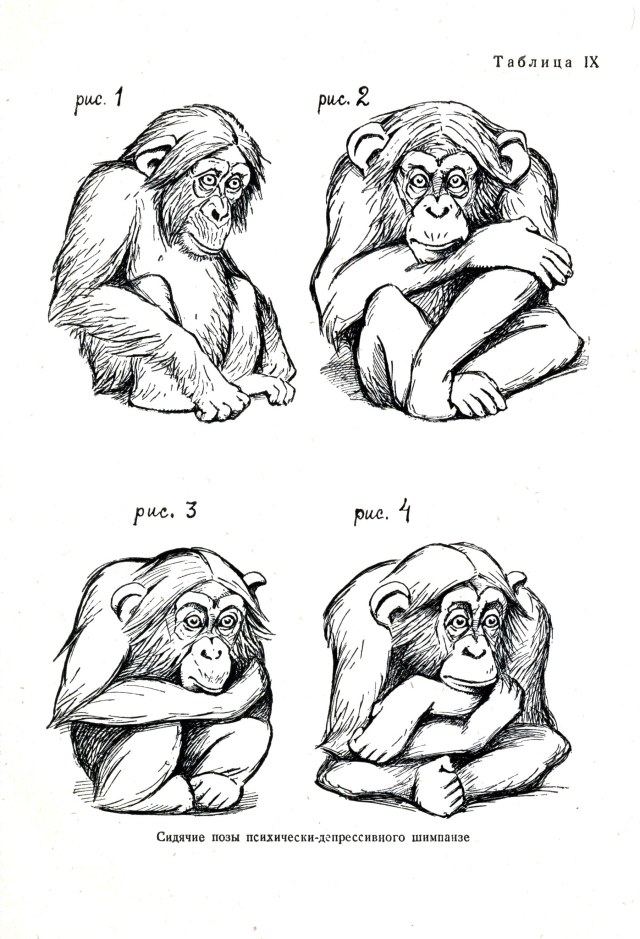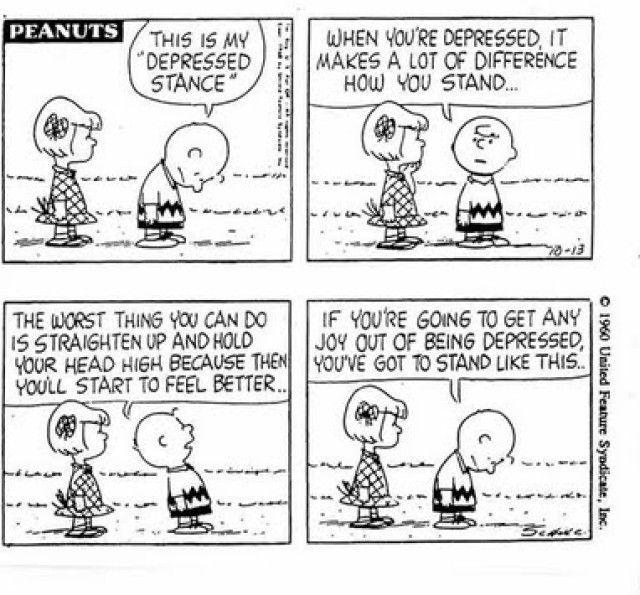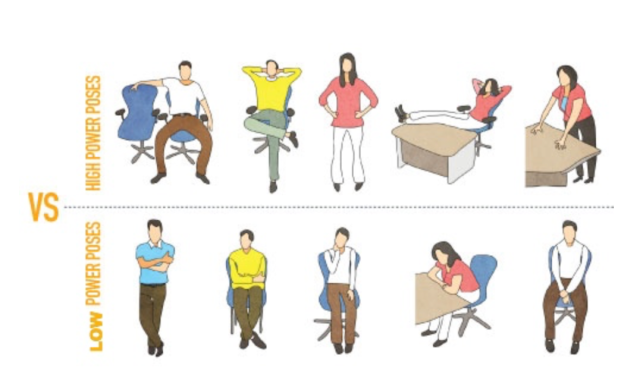Some years ago I remember seeing a fascinating set of drawings of how chimps change their posture as they become increasingly distressed, sad or emotionally overwhelmed. The postures they adopt look very familiar – arms crossed, body hunched, making themselves small.


Looking at this similarity it made me think of how at times of stress and powerlessness our bodies go into a posture that has its roots deep in our evolutionary body memory. At the time I also saw this cartoon, which says so much about the importance of posture

It was a few years latter that I saw Amy Cuddy’s video on the importance of posture to our sense of well being. On seeing this it opened a new dimension on the importance of being present to one’s posture and its impact on our sense of self worth.
Amy Cuddy observed that some of her students adopted very submissive postures which took up little space, whilst others adopted postures that took up a lot of space. The students who occupied only a small space often came across as timid and uncertain, and some talked to her about wanting to drop out of the course and did less well in class whilst doing much better in their written assignments.
Curious about this Cuddy conducted an experiment using 42 students. They were told the experiment was to see the effect of whether electrodes were placed above or below the heart, but the real experiment was to have half adopt high power poses and the other half adopt low power poses for two minutes.

Participants had saliva swabs taken before and after to test for cortisol and testosterone levels and were asked to report how they felt at the end of the two minutes in these postures. The results showed that two minutes of holding a power posture led to an increase in testosterone and a decrease in cortisol. In her talk below Amy describes how the power posture links us to the way alpha male chimps will stand and compares this to the instinctual behaviour an athlete displays on winning. Amy comments that even if someone has been blind from birth they still know to make the same gesture on winning.

Having observed in the experiment how adopting a power pose could alter testosterone and mood Amy started to encourage her more reticent students to adopt the high power pose postures and to see what impact this would have. In the talk she describes this as ‘fake it till you become it’, noting that if we feel small and insecure adopting a high power pose can feel uncomfortable, but by consistently doing so over time we can start to feel it and act accordingly.
Last week I looked at Mel Robbins’ talk about the power of shifting from feeling overwhelmed to seeing it as feeling excited. Amy Cuddy gives a similar insight into changing how you feel in a situation, by introducing the awareness of the impact a certain posture can have on how we feel. Linking the two approaches together could have a powerful effect on shifting the inner narrative about a situation: noting a low power posture and associated mood or self talk “I’ll never achieve this” etc, and then thinking 5,4,3,2,1, and shifting to a high power posture and seeing how this changes how we feel or think.
As I researched this email I found there has been some significant criticism of Amy Cuddy’s original study and dismissal of her findings. I’m sad that some who was so eager to share her experience of how body language and posture can impact on our sense of self-worth has received so much vilification. In the end these things are there to be tried out and explored for oneself and if they work one can adopt them, if not let them go. Over the last few years since watching Amy’s Ted talk I have been conscious of my posture and of noting when my body goes into a low power pose and feeling in to what is happening, then seeing what happens if I shift to a high power pose. Perhaps it does not lead to an increase in testosterone, with some attempts to replicate her study having found it impossible to replicate this aspect of her findings, but I certainly find it alters my mood and how I feel about myself and brings a greater awareness to how I habitually hold my body and what this says about how I express myself physically. It has also made me aware of the impact of posture on mood, noting how low power postures are associated with feeling unconfident and unsure, whereas by switching to a high power pose I immediately feel more at ease and confident. I hope you enjoy playing with it!
If you would like to see her full 20 minute Ted talk the video is below.
